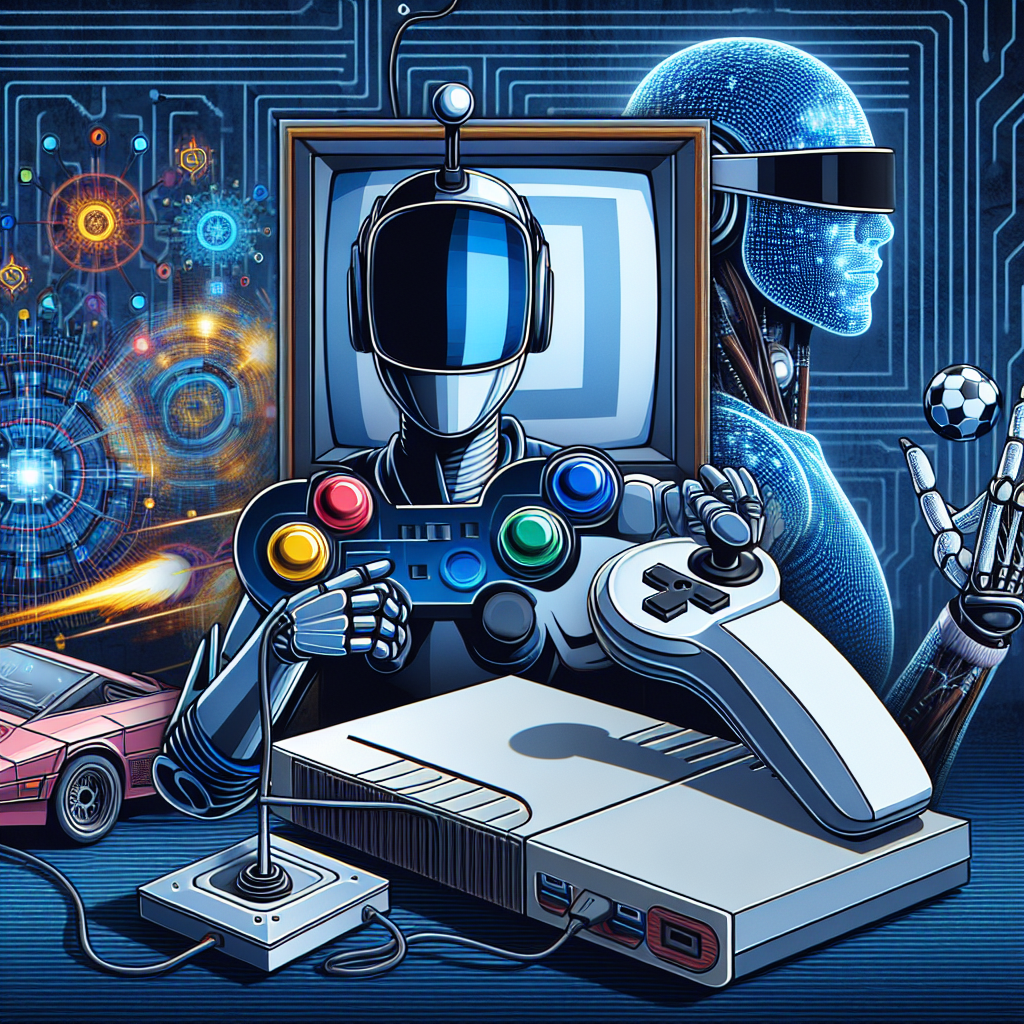Artificial intelligence (AI) has been rapidly transforming various industries, and the gaming industry is no exception. With the advancement of AI technology, game developers are now able to create more immersive, interactive, and engaging gaming experiences for players. From improved graphics and realistic behaviors to personalized gameplay and adaptive storytelling, AI is revolutionizing the way games are created, played, and experienced.
One of the key ways AI is revolutionizing the gaming industry is through the use of machine learning algorithms. These algorithms enable game developers to create more realistic and intelligent non-player characters (NPCs) that can adapt to the player’s actions and make decisions based on their behavior. This leads to more dynamic and challenging gameplay, as NPCs can learn and evolve throughout the game.
AI is also being used to enhance the graphics and visual effects of games. Through techniques such as neural networks and deep learning, developers can create more realistic environments, characters, and animations. This not only enhances the overall gaming experience but also reduces the workload for artists and designers, allowing them to focus on other aspects of game development.
Furthermore, AI is changing the way games are designed and developed. With the help of AI-powered tools, developers can generate game levels, characters, and assets automatically, saving time and resources. This allows for faster and more efficient game development, as well as the creation of more diverse and complex game worlds.
In addition to improving gameplay and graphics, AI is also revolutionizing the way games are personalized for individual players. By analyzing player data and behavior, AI algorithms can create personalized experiences tailored to each player’s preferences and skill level. This not only enhances player engagement but also increases player retention and monetization.
Moreover, AI is revolutionizing game storytelling by creating more dynamic and adaptive narratives. Through AI-powered systems, developers can create branching storylines, dynamic dialogue, and adaptive gameplay that respond to the player’s choices and actions. This leads to more immersive and engaging storytelling experiences that keep players invested in the game world.
Overall, AI is revolutionizing the gaming industry by enhancing gameplay, graphics, game design, personalization, and storytelling. With the continued advancement of AI technology, we can expect to see even more innovative and immersive gaming experiences in the future.
FAQs:
Q: How is AI used in game development?
A: AI is used in game development to create more realistic NPCs, enhance graphics and visual effects, automate game design processes, personalize gameplay experiences, and create adaptive storytelling.
Q: How does AI improve gameplay in games?
A: AI improves gameplay in games by creating more intelligent and challenging NPCs, adapting gameplay based on player behavior, and creating personalized experiences tailored to each player’s preferences and skill level.
Q: What are some examples of AI-powered games?
A: Some examples of AI-powered games include “The Witcher 3: Wild Hunt,” which uses AI to create dynamic and adaptive NPCs, and “Fortnite,” which uses AI to personalize gameplay experiences for each player.
Q: How does AI enhance game graphics?
A: AI enhances game graphics by using techniques such as neural networks and deep learning to create more realistic environments, characters, and animations.
Q: How does AI influence game storytelling?
A: AI influences game storytelling by creating branching storylines, dynamic dialogue, and adaptive gameplay that respond to the player’s choices and actions, leading to more immersive and engaging storytelling experiences.

